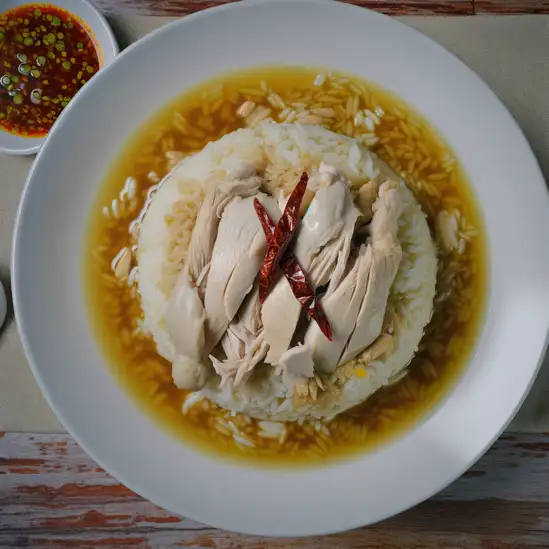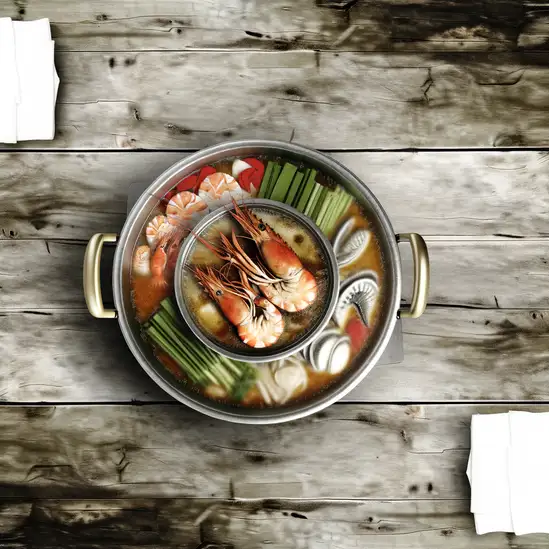



If you’re heading to Haikou,get ready to step into a city that feels like a gentle breeze on a warm day—relaxed,vibrant,and full of life. It’s the kind of place where the ocean’s salty tang mingles with the scent of tropical flowers,and the streets hum softly with the chatter of locals and the clinking of tea cups. Walking along the waterfront,you’ll catch glimpses of fishing boats bobbing lazily,while palm trees sway overhead,casting playful shadows on the sun-dappled sidewalks. Haikou’s charm lies in its blend of old and new. The historic neighborhoods invite you to wander through narrow lanes lined with colorful shophouses,where the aroma of freshly steamed buns and spicy seafood fills the air. At night,the city transforms as lanterns flicker to life,and street vendors dish out Hainanese chicken rice and coconut-flavored desserts that are as comforting as a warm hug. The pace here is unhurried,encouraging you to savor every bite,every conversation,every moment. What really makes Haikou stand out is its genuine warmth—both in the weather and the people. Locals greet you with easy smiles and a curiosity that feels welcoming rather than intrusive. Whether you’re exploring the lush parks,cycling along the coast,or simply sipping a cup of strong,sweet coffee in a bustling café,Haikou invites you to slow down and soak in its unique rhythm. It’s a city that stays with you long after you’ve left,whispering stories of sun,sea,and simple joys.
The information on this page is currently being reviewed by Tripkliq and should be used as a guide only
Eng word: Hello
Eng pronunciation: nǐ hǎo
Local language: 你好
Eng word: Goodbye
Eng pronunciation: zài jiàn
Local language: 再见
Eng word: Thank you
Eng pronunciation: xiè xiè
Local language: 谢谢
Eng word: How much
Eng pronunciation: duō shǎo qián
Local language: 多少钱
Eng word: Toilet
Eng pronunciation: cè suǒ
Local language: 厕所
Eng word: Help me
Eng pronunciation: bāng bāng wǒ
Local language: 帮帮我
Eng word: Yes
Eng pronunciation: shì
Local language: 是
Eng word: No
Eng pronunciation: bù shì
Local language: 不是
Eng word: Excuse me
Eng pronunciation: duì bù qǐ
Local language: 对不起
Haikou has a history of over 2,000 years, with evidence of early settlement dating back to the Qin Dynasty.
Haikou has served as an important port city for centuries, facilitating trade and cultural exchange with Southeast Asia and beyond.
Haikou is located on the northern coast of Hainan Island, near the Qiongzhou Strait, which has historically been a strategic maritime passage.
During the Ming Dynasty, Haikou was established as a fortified military outpost to defend against pirate attacks.
In the Qing Dynasty, Haikou grew as a trading center and was known for its production of sugar and tropical fruits.
Haikou was occupied by the Japanese during World War II, leading to significant destruction and hardship for the local population.
Since the late 20th century, Haikou has experienced rapid development and urbanization, becoming a popular destination for tourism and investment.
Haikou is the capital of Hainan Province and is a key city in the Hainan Free Trade Zone, established in 2020 to promote economic growth and international trade.
Haikou is known for its tropical climate, with warm temperatures year-round, making it a popular destination for beach holidays and outdoor activities.
In Haikou, the most common Power Adaptor is Type A, Type C.



A fragrant dish made with poached chicken and seasoned rice, served with chili sauce and usually accompanied by cucumber garnishes.

A popular communal dish where fresh seafood, vegetables, and noodles are cooked in a flavorful broth at the table.

A famous local chicken dish known for its tender meat and rich flavor, often served with a special dipping sauce made from ginger and garlic.

A type of noodle dish that features thin wheat noodles served in a savory broth, often topped with vegetables, meat, and sometimes seafood.

A unique dish made from rice cooked in coconut milk, giving it a rich flavor and creamy texture, often served with various side dishes.

A type of dumpling made with a chewy rice flour skin, typically filled with meat and vegetables, and served with a sweet and spicy sauce.

A refreshing soup made with fresh fish, tomatoes, and a variety of herbs, known for its tangy flavor.
Imagine stepping into a place where the ocean breeze carries a hint of salt and tropical flowers,and the sun seems to linger just a little longer on your skin—that’s Sanya. Nestled on the southern tip of Hainan Island,this city feels like a warm embrace from the moment you arrive. The rhythm here is relaxed but alive,with palm trees swaying gently against a backdrop of turquoise waters and soft,sandy beaches that stretch endlessly. It’s the kind of place where mornings start with the chatter of fishermen unloading their catch and the scent of fresh seafood mingling with the salty air.
Walking through Sanya’s bustling markets,you’ll hear the lively calls of vendors selling exotic fruits and spices,while the aroma of grilled satay and tropical fruits like lychee and mango tease your senses. The city’s culture is a vibrant blend of traditional Li and Miao ethnic influences mixed with modern coastal charm,giving it a unique character that’s both authentic and inviting. You can feel the warmth not just from the sun but from the locals,who are genuinely friendly and eager to share their stories.
Whether you’re wandering along the palm-lined streets,diving into crystal-clear waters,or savoring a bowl of freshly caught seafood at a beachside shack,Sanya invites you to slow down and soak in its easygoing spirit. It’s a place that stays with you long after you leave,whispering promises of sunlit days and starry nights.
Imagine stepping into a city where towering skyscrapers meet bustling street markets,and the scent of sizzling street food mingles with the salty breeze from Victoria Harbour. That’s Hong Kong for you—a vibrant pulse of energy that never quite slows down. Walking through its neighborhoods,you’ll hear a symphony of sounds:the chatter of locals bargaining over fresh produce,the clatter of dim sum carts,and the distant hum of ferries gliding across the water. It’s a place where East and West blend seamlessly,creating a unique rhythm that’s both modern and deeply rooted in tradition.
What really grabs you about Hong Kong is its character—bold,unapologetic,and endlessly curious. One moment you’re wandering through neon-lit streets in Mong Kok,alive with the buzz of night markets and arcade games,and the next,you’re finding calm in the lush greenery of Victoria Peak or the quiet temples tucked away in the city’s corners. The city’s food scene alone is a journey:from steaming bowls of wonton noodles to delicate egg tarts fresh from the oven,every bite tells a story.
Hong Kong feels like a city that’s always inviting you to explore a little deeper,to taste a little more,and to soak in its vibrant culture. It’s a place where every street corner has a story,and every sunset over the harbor feels like a personal gift. Trust me,once you’re there,you’ll understand why it’s impossible not to fall a little in love with this dynamic city.
If you wander into Guangzhou,you’ll immediately feel the city’s vibrant pulse—a lively blend of old-world charm and modern energy that wraps around you like a warm breeze. The streets buzz with the chatter of locals,the sizzle of street food stalls,and the occasional honk of scooters weaving through the traffic. It’s a place where ancient temples sit quietly beside gleaming skyscrapers,and the scent of jasmine tea mingles with the aroma of freshly steamed dim sum. Walking along the Pearl River at dusk,the city lights shimmer on the water,creating a magical backdrop that feels both timeless and alive.
Guangzhou’s character is deeply rooted in its rich Cantonese culture. Here,food isn’t just sustenance—it’s a celebration. Imagine biting into a delicate har gow dumpling,the thin wrapper giving way to juicy shrimp,or savoring a bowl of double-boiled soup that’s been simmered for hours. The markets overflow with exotic fruits,spices,and teas,inviting you to taste and explore. Beyond the flavors,the city’s warmth comes from its people—friendly,proud,and always ready to share a story or a smile.
What makes Guangzhou truly unique is how it balances tradition and innovation. You can lose yourself in the narrow alleys of Shamian Island,where colonial architecture whispers tales of the past,then hop on a metro to the ultra-modern Canton Tower,watching the city stretch out beneath you. It’s a place that invites curiosity,where every corner holds a new discovery,and every moment feels like a conversation waiting to happen.
Imagine a place where the sea breeze carries the scent of salt and blooming jasmine,and the skyline shimmers with a mix of modern glass towers and cozy seaside neighborhoods—that’s Zhuhai. This city has a laid-back charm that instantly puts you at ease,like a friend who’s both effortlessly cool and warmly welcoming. Walking along the Lover’s Road promenade,you’ll hear the gentle lapping of waves mingling with the distant laughter of families and the occasional call of seagulls,creating a soundtrack that feels both peaceful and alive.
Zhuhai’s character is a beautiful blend of old and new. You can wander through bustling markets where vendors shout out fresh seafood deals,the air thick with the aroma of grilled scallops and spicy street snacks. Then,just a short ride away,you find sleek parks and art installations that invite you to slow down and soak in the city’s creative pulse. The locals here have a relaxed friendliness that makes you feel like you’re part of a community,not just a visitor.
What really sets Zhuhai apart is its rhythm—calm yet vibrant,coastal yet cosmopolitan. Whether you’re sipping a cup of fragrant oolong tea in a quiet teahouse or catching the sunset over the Pearl River Delta,there’s a sense of balance and warmth that stays with you long after you leave. It’s a place that invites you to explore at your own pace and discover the simple joys of life by the sea.
Imagine stepping into a place where the ocean breeze carries the scent of salty waves mingled with the sweet aroma of blooming frangipani. That’s Xiamen for you—a coastal city that feels like a gentle hug from the sea itself. Walking along the palm-lined streets,you’ll hear the rhythmic chatter of locals and the distant hum of fishing boats returning with the day’s catch. The city pulses with a laid-back energy,a perfect blend of old-world charm and modern vibrancy.
What really makes Xiamen stand out is its unique mix of cultures. The colonial-era architecture on Gulangyu Island,with its pastel-colored mansions and winding lanes,invites you to wander and get lost in stories whispered by the walls. Meanwhile,the bustling markets and street food stalls on the mainland offer a sensory feast—imagine biting into a freshly made oyster omelet,the flavors rich and briny,or sipping on a cup of fragrant jasmine tea while watching the world go by.
Xiamen’s character is warm and welcoming,with a rhythm that encourages you to slow down and savor the moment. Whether you’re cycling along the scenic coastline,exploring quaint temples tucked away in quiet corners,or simply sitting by the water as the sun dips below the horizon,there’s a peacefulness here that stays with you long after you leave. It’s a city that invites you to breathe deeply,taste boldly,and feel truly alive.
Imagine stepping into a city where the buzz of scooters blends with the inviting aroma of street food sizzling on every corner—that’s Taipei for you. It’s a place where ancient temples nestle beside gleaming skyscrapers,and night markets pulse with life long after the sun dips below the horizon. Walking through Taipei,you feel this vibrant energy that’s both electric and warmly familiar,like a city that’s constantly awake but never rushed.
The streets are alive with colors and sounds:vendors calling out their specials,the clatter of mahjong tiles in cozy tea houses,and the sweet scent of bubble tea mingling with the earthy fragrance of freshly steamed dumplings. Taipei’s culture is a beautiful blend of tradition and modernity,where you can explore centuries-old heritage at Longshan Temple,then hop on a high-speed train to the top of Taipei 101 for a jaw-dropping cityscape view.
What really sticks with you is the genuine kindness of the people—locals who are eager to share their favorite night market stalls or recommend a quiet café tucked away in a leafy alley. Whether you’re savoring a bowl of beef noodle soup or wandering through the lush trails of Elephant Mountain,Taipei feels like a city that invites you to slow down,explore deeply,and savor every moment.
Shops or street vendors sell fake luxury items or low-quality products, claiming they are authentic or high-end.
Scammers sell counterfeit tickets to popular attractions, leaving tourists unable to enter upon arrival.
Unlicensed individuals pose as tour guides and offer to show tourists around, but they provide little value and may overcharge for their services.
Vendors in tourist-heavy areas sell souvenirs at inflated prices, targeting tourists unfamiliar with local pricing.
Restaurants in tourist areas may have dual pricing, with higher prices for tourists or hidden charges added to the bill.
Tourists are lured into street gambling games, which are rigged to ensure they lose money.
Some taxi drivers refuse to use the meter and charge tourists excessive fares, especially for airport or hotel transfers.
Tourists are approached by friendly locals who invite them to a tea house for a cultural experience. After the tea session, they are presented with an exorbitant bill.
Unregistered drivers offer rides at inflated prices, often targeting tourists unfamiliar with local transportation options.
China has very strict laws regarding drug use, possession, and trafficking. In Haikou, as in the rest of the country, the use, possession, or trafficking of illegal drugs can result in severe penalties, including long prison sentences and even the death penalty. Tourists should avoid any involvement with illegal drugs to avoid serious legal consequences.
In Haikou, as in the rest of China, smoking is regulated by national and local laws. Smoking is prohibited in public indoor spaces, including restaurants, bars, and public transportation. There are designated smoking areas in some public places, but tourists should look for signs indicating where smoking is allowed. Violations can result in fines.
Vaping is subject to similar regulations as smoking in Haikou. It is prohibited in indoor public spaces and on public transportation. Designated vaping areas may be available in some locations, but it is less common than smoking areas. Tourists should be cautious and look for signs or ask locals for guidance.
What are other people saying about Haikou?
Recent Social posts about Haikou
There is nothing to show you for now.